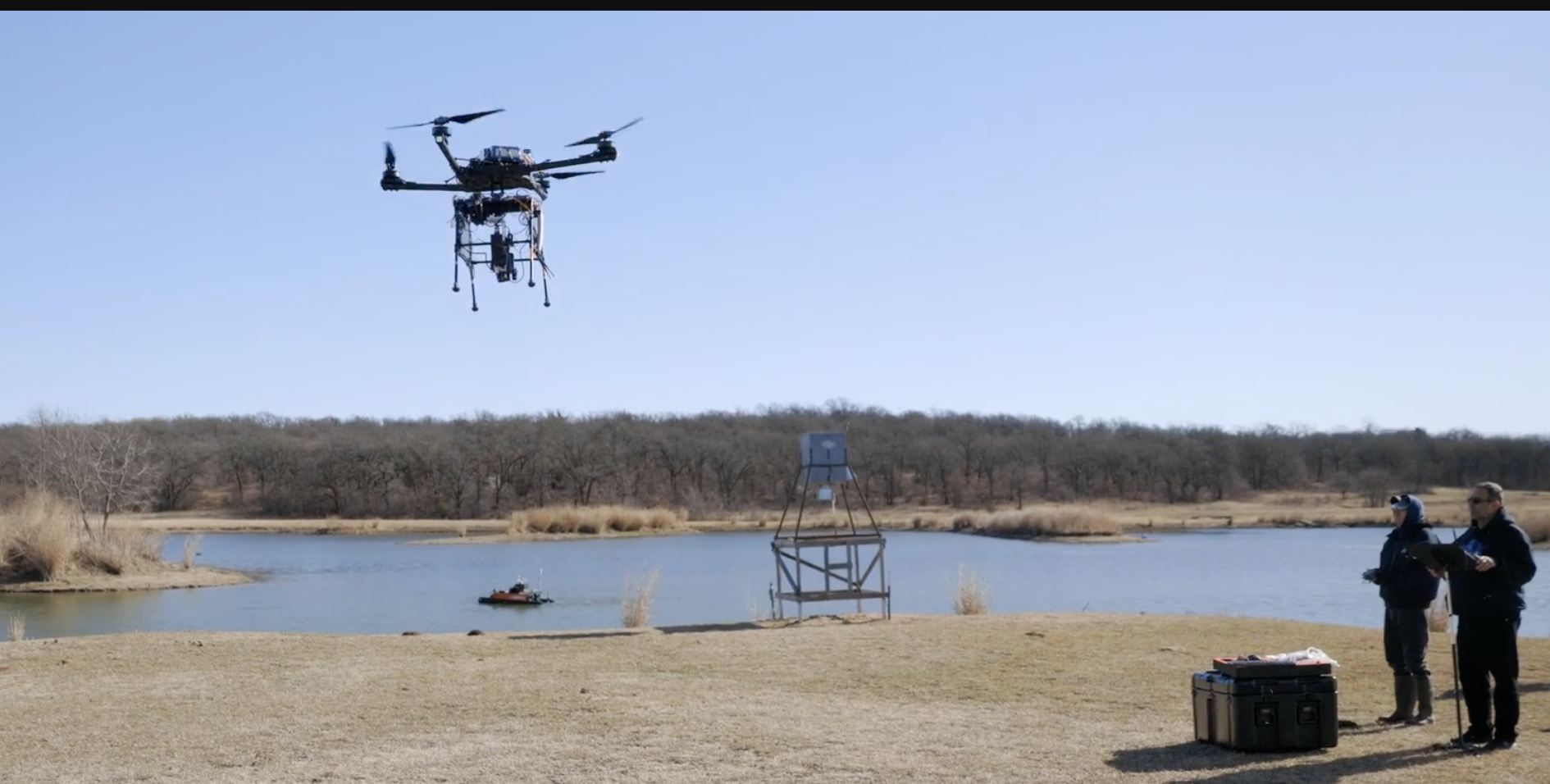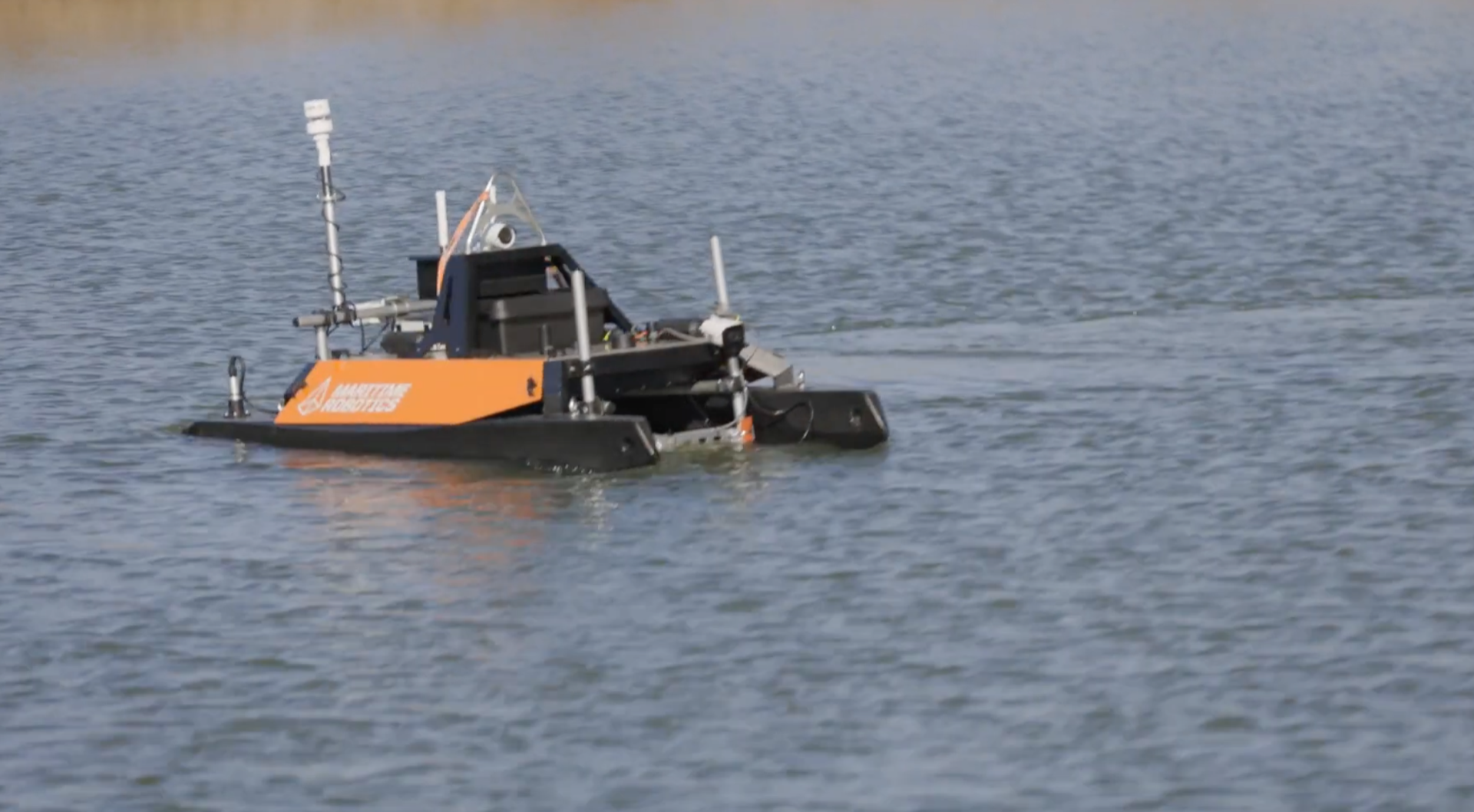
Dr. David Lary, professor of physics in the School of Natural Sciences and Mathematics, recently was featured in The Dallas Morning News discussing his work using remote-controlled machines to clean up environments, assess drinking water quality, and otherwise investigate spills on land, sea, and air.
For the past decade he and his research team have developed protocols following a toxic spill or otherwise enter places deemed dangerous to people – but not to robots.
Imagine allowing a team of robots and drones to do all the dirty work. It’s happening now, thanks to Dr. Lary’s work and research.

U.S. Department of Defense video of Dr. David Lary and his Robots
Cleanup Robots Being Trained at UT Dallas to Tackle Hurricanes, Oil Spills: The Dallas Morning News, July 6, 2022
The multirobot, multisensor team can employ various combinations of devices, such as a robot boat that carries sensors to measure water composition, as well as sonar to track objects below the surface and to provide aquatic remote sensing. At the same time, an overflying aerial robot collects hyperspectral images, providing an entire spectrum for every pixel in the image. Using the remotely sensed information, the devices — through machine learning — can rapidly construct wide area maps of the environmental state.
“Not only do we get depth information, we also can measure the height of any vegetation that’s in the water. We can determine what is at the base of a pool, pond or estuary and the kinds of fish in the vicinity. With the sonar we can count and size the individual fish and get the total biomass in a vertical profile,” Dr. Lary said.
Help us leave the planet a better place for future generations. Your support for the School of Natural Sciences and Mathematics funds scientific discoveries with real-world applications, student and faculty recruitment, and academic scholarships.